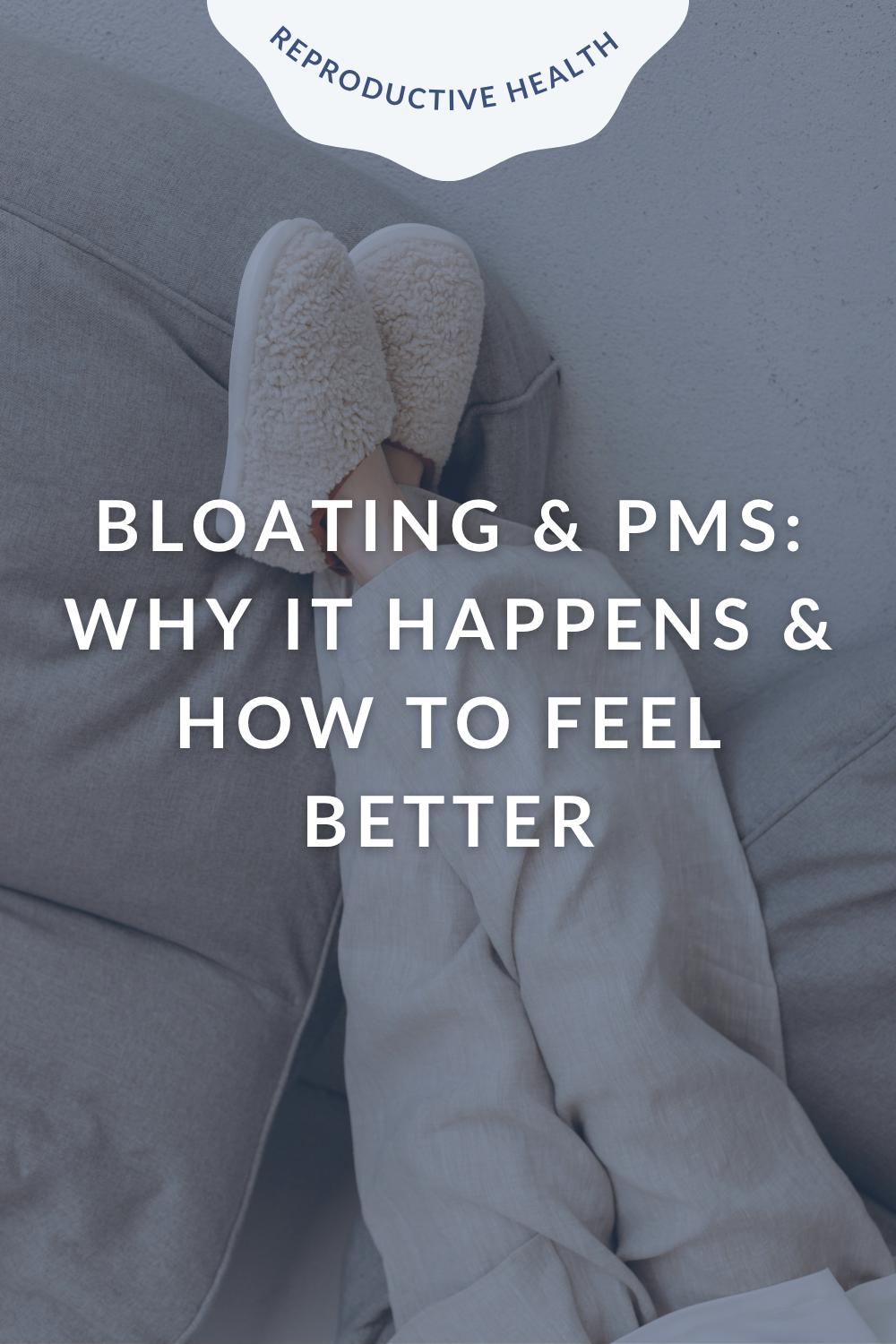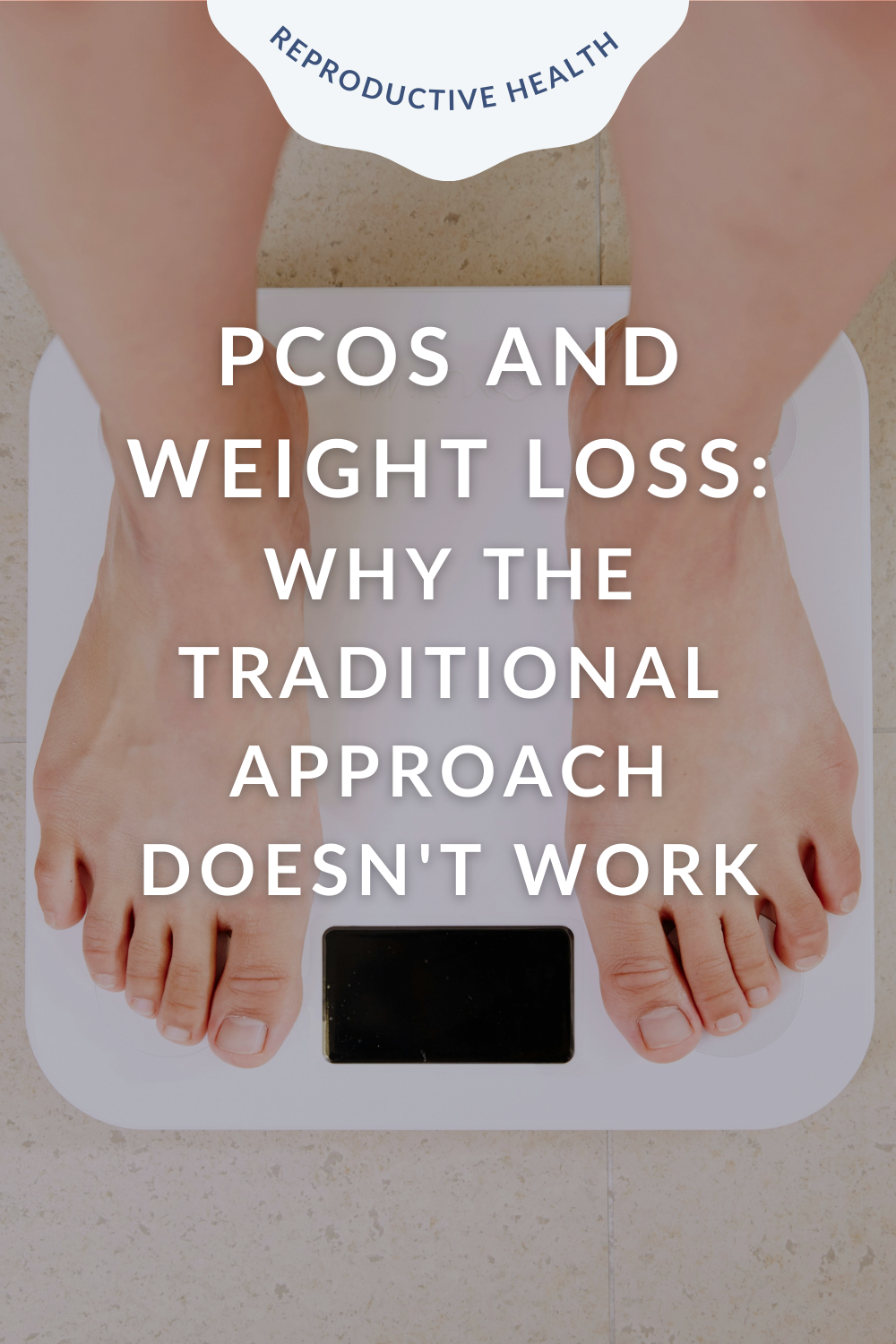Your Future with PCOS: Staying Ahead of Risks
When you hear about PCOS, the first thing that pops up is usually “fertility.” While that’s a valid and important topic, the health implications of having PCOS run much deeper and longer.
PCOS is a lifelong condition that significantly increases your risk for serious diseases and cancer. That may sound scary, but once we accept that reality, we’re more equipped to deal with its changing nature through various stages of life!
By taking action now, you set yourself up for better long-term outcomes, preventing complications and helping you feel your best at every stage of life.
When you hear about PCOS, the first thing that pops up is usually “fertility.” While that’s a valid and important topic, the health implications of having PCOS run much deeper and longer.
PCOS is a lifelong condition that significantly increases your risk for serious diseases and cancer. That may sound scary, but once we accept that reality, we’re more equipped to deal with its changing nature through various stages of life!
By taking action now, you set yourself up for better long-term outcomes, preventing complications and helping you feel your best at every stage of life.
Understanding the Long-Term Health Risks of PCOS
Having PCOS increases your risk for metabolic, cardiovascular and psychological health conditions. These aren’t just statistics on a screen - it can lead to serious complications if left unmanaged. Some of these may surprise you:
People with PCOS are five times more likely to develop endometrial cancer, as the hormonal imbalances can cause irregular or missed menstrual cycles, leading to an overgrowth of the uterine lining.
PCOS increases the risk of developing Type 2 diabetes, which can shorten lifespan by five to 15 years. Diabetes also contributes to 40% of heart attacks, 30% of strokes and 50% of kidney failure requiring dialysis.
Many individuals with PCOS also develop metabolic syndrome, a cluster of conditions that significantly raises the risk of heart disease, stroke, and diabetes.
We share this information not to scare you or fuel health anxiety, but rather - we believe that informed action within your capacity is the best way to take care of yourself. Sometimes, conditions progress due to factors out of our control - but, by focusing on what’s within your control and habits can only help.
PCOS can’t be reversed, but it can absolutely be in remission during various stages of this long beautiful thing we call life. Proactive management through lifestyle and regular medical check-ins ensures that you’re not just reacting to symptoms but actively preventing future health challenges!
How to Stay Ahead of Metabolic Syndrome with PCOS
1. Stay Informed About Your Health
It’s tempting to skip your annual physical or delay blood work if you “feel fine”, but data is important. These visits provide you with information that act as essential metrics to measure your health. This means that by regularly monitoring your blood work and symptoms, you can identify patterns and detect concerns earlier before they become serious.
Keeping track of symptoms at home can also be valuable - hence, we have our Free PCOS symptom tracker and lab work checklist for you to monitor changes over time.
Regular health screenings can include:
Blood glucose and insulin tests to monitor for insulin resistance and Type 2 diabetes risk
Lipid panels to check cholesterol levels
Liver function tests to assess the risk of fatty liver
Sleep assessments if you experience chronic fatigue or symptoms of sleep apnea
Hormonal panels to evaluate reproductive and metabolic health
By staying informed, you can work with your healthcare provider to make adjustments as needed and take action early.
2. Practice Gentle Nutrition
It still shocks me how many patients we get each month that have suffered for years with PCOS before being referred to a Registered Dietitian. In the meantime, many have cycled through short-term restrictive diets, weight cycling, with their PCOS symptoms and trust in food/body worsening each time.
If this is you - you’re right in that nutrition IS an effective treatment for PCOS. But, rather than focusing on restriction, a gentle nutrition approach is shown to work best - by fostering sustainable and nutrient-dense eating patterns. We strongly recommend working with a Registered Dietitian who has a special focus in PCOS to guide you through personalized nutrition strategies.
Also, don’t sideline your relationship with food. This is equally important to knowledge, in my opinion. Having a strong relationship with food is what makes nutrition principles stick. It’s taking away the icky feeling of shame and guilt we’ve been taught to feel around food, and focusing that energy on self-compassion. Which, no surprise here, makes practicing gentle nutrition actually possible.
Here’s some small, manageable shifts can make a big impact:
Prioritize protein, fibre and unsaturated fats at meals to support stable blood sugar.
Include anti-inflammatory foods, such as colourful vegetables, omega-3-rich fish and nuts/seeds, and antioxidant-packed fruits.
Avoid extremes or anything that promises “quick results.” Balance and sustainability is key! If it sounds too good to be true, it probably is. If you can’t stick to it for five years, why waste five weeks on it.
Support gut health by incorporating fermented foods like yogurt, kimchi, kombucha and sauerkraut.
Hydrate well! Proper hydration supports digestion, metabolism and energy levels.
Our PCOS Recovery Program gives you all the tools and structure to make these shifts, helping you take control over your PCOS symptoms with science-backed nutrition and lifestyle strategies.
3. Reassess Your Health Plan at Each Life Stage
The International Evidence-Based Guidelines for PCOS recommend a lifelong “reproductive care plan”, acknowledging that needs evolve over time as hormone levels naturally shift with age.
On top of that, I think that as you continue to accumulate lived experiences in this dynamic thing called life - your relationship with food, access to food, meaning of food, continues to shift, impacting the way you eat and move and think in your body.
Given this, I encourage you to continue to monitor and reassess your health plan at each stage of life - from adolescence to early adulthood, middle age and post-menopause, each phase brings different hormonal changes, symptoms and challenges.
Your eating patterns, energy needs, and lifestyle will shift - and perhaps your approach to managing PCOS. For example:
During adolescence, the focus may be on balanced meals, addressing acne or irregular periods, and fostering a healthy relationship with food.
In early adulthood, managing stress, stable energy levels, and menstrual regularity may be priorities.
In middle age, cardiovascular health, insulin resistance, and maintaining muscle mass become increasingly important.
Post-menopause, addressing bone health, metabolism, and long-term disease prevention may be the primary focus.
By reassessing your plan at each phase of life, you ensure that your health strategy remains relevant and effective.
The Takeaway
PCOS management isn’t just about fertility - it’s about long-term health and feeling your best at every stage of life. By staying informed, practicing gentle nutrition, incorporating mindful movement, and adapting your approach as you grow, you can reduce risks and take charge of your well-being.
Hi! I’m Trista
A Registered Dietitian and reproductive health expert. I’m here to help you gain confidence to overcome your Polycystic Ovary Syndrome and digestive health woes, while bettering your relationship with food.
CATEGORIES
Do you want to break free from the cycle of PCOS restriction and frustration?
Join PCOS Recovery Program - a 3-Month Coaching Program to Help You Take Control of Your PCOS Symptoms with Science-Backed Nutrition & Lifestyle Strategies.












